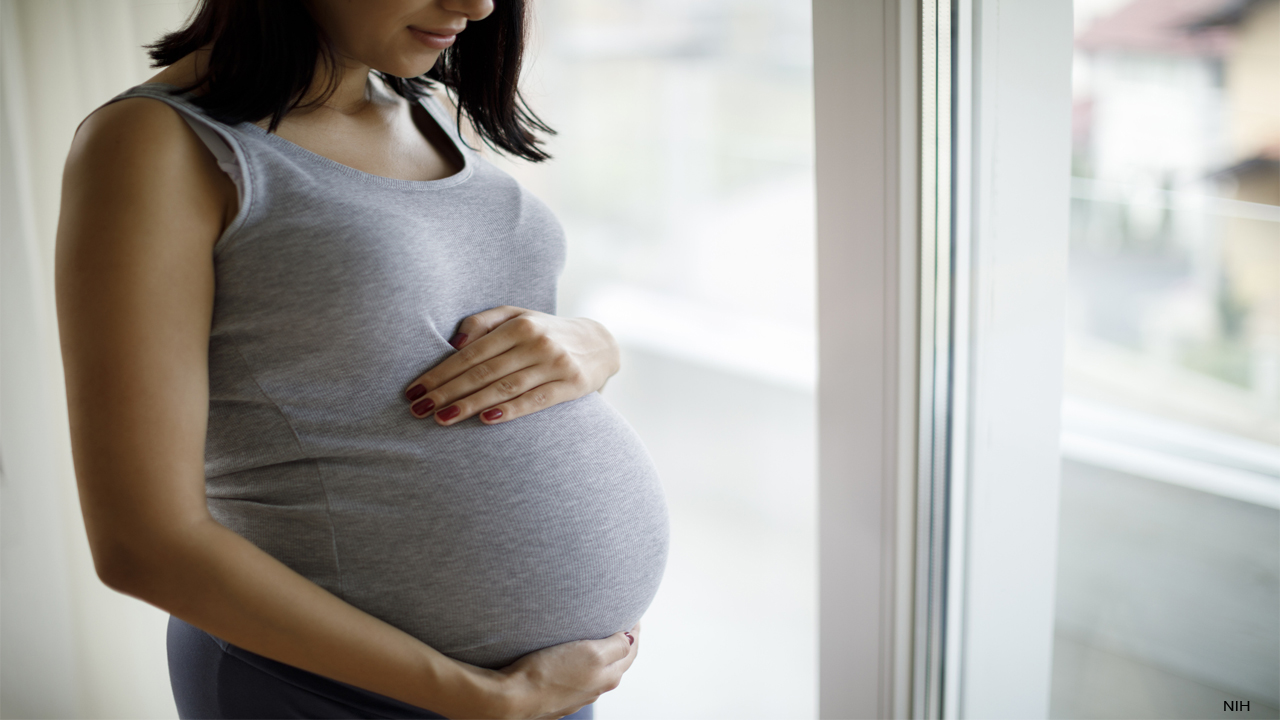Pregnant women who are infected with SARS-CoV-2, the virus that causes COVID-19, during the third trimester are unlikely to pass the infection to their newborns, suggests a study funded by the National Institutes of Health. The study followed 127 pregnant women who were admitted to Boston hospitals during the spring of 2020. Among the 64 pregnant women who tested positive for SARS-CoV-2, no newborns tested positive for the virus. NIH support was provided by the Eunice Kennedy Shriver National Institute of Child Health and Human Development (NICHD), the National Heart, Lung, and Blood Institute (NHLBI), and the National Institute of Allergy and Infectious Diseases (NIAID).
"This study provides some reassurance that SARS-CoV-2 infections during the third trimester are unlikely to pass through the placenta to the fetus, but more research needs to be done to confirm this finding," said Diana W. Bianchi, M.D., NICHD Director.
The study, published in the journal JAMA Network Open, was led by Andrea G. Edlow, M.D., M.Sc., of Massachusetts General Hospital and Harvard Medical School.
The researchers studied the occurrence of SARS-CoV-2 infection in the third trimester of pregnancy, evaluating levels of virus in respiratory, blood, and placental tissue samples, the development of maternal antibodies, how well those antibodies passed through the placenta to the fetus (an indicator of potential immune protection from the mother) and examined placental tissue. The results reported are limited to women in the third trimester because data on women infected during the first and second trimesters are still being collected and evaluated.
Among those who tested positive for SARS-CoV-2 in the study, 36% (23/64) were asymptomatic, 34% (22/64) had mild disease, 11% (7/64) had moderate disease, 16% (10/64) had severe disease, and 3% (2/64) had the critical disease. The study included, as comparators, 63 pregnant women who tested negative for SARS-CoV-2 and 11 reproductive-age women with COVID-19 who were not pregnant.
The team found that pregnant women who were positive for SARS-COV-2 had detectable levels of virus in respiratory fluids like saliva, nasal and throat secretions, but no virus in the bloodstream or the placenta.
The researchers did not find significant differences between levels of SARS-CoV-2 antibodies produced by pregnant and non-pregnant women. However, the study team did observe lower-than-expected levels of protective antibodies in umbilical cord blood. In contrast, they found high levels of influenza-specific antibodies, presumably from maternal flu vaccination, in the cord blood samples of both SARS-CoV-2 positive and negative women. The researchers suggest these findings may indicate that SARS-CoV-2 antibodies do not pass through the placenta as easily as other maternal antibodies.
The researchers believe theirs is one of the first reports of the less-than-expected transfer of SARS-CoV-2 antibodies to the fetus. Low transfer of these antibodies was observed regardless of the woman's severity of COVID-19 or whether she had an underlying health condition, such as obesity, high blood pressure, or diabetes. The study authors noted that it will be important to determine why these maternal antibodies are less likely to cross the placenta and whether this reduced antibody transfer renders newborns more vulnerable to SARS-CoV-2 infection, compared to other infections. The authors added that it will be important to determine how lower levels of maternal SARS-CoV-2 antibodies may affect the health outcomes of preterm babies because COVID-19 may increase the risk of preterm labor.
The study also found that placentas from infected women were not different from those of uninfected women, though the risk for ischemia (reduced blood flow) in the placenta appeared higher for women with more severe COVID-19. In line with an earlier report, the researchers also found that while the placenta expresses major molecules used by SARS-CoV-2 to cause infection the ACE2 receptor and the TMPRSS2 enzyme two molecules are rarely expressed together in the same location, which may help explain why the virus only rarely affects the placenta.
The researchers suggest their findings could help improve the care of pregnant women with COVID-19 and of their newborns, as well as provide information to assist in the development of new strategies for vaccinating pregnant women.

 Pregnant women who are infected with SARS-CoV-2, the virus that causes COVID-19, during the third trimester are unlikely to pass the infection to their newborns, suggests a study funded by the National Institutes of Health.
Pregnant women who are infected with SARS-CoV-2, the virus that causes COVID-19, during the third trimester are unlikely to pass the infection to their newborns, suggests a study funded by the National Institutes of Health.





.jpeg)
.jpeg)





.jpeg)






.jpeg)




.jpeg)








